 Lexence
VS
Lexence
VS
 OpenCase
OpenCase
Lexence
Lexence provides a specialized AI legal assistant tailored for legal professionals, aiming to enhance efficiency and maintain high standards of legal accuracy. The platform assists users with various tasks central to legal practice, including retrieving relevant case law, interpreting clauses within documents, and summarizing complex legal texts.
It features capabilities such as advanced search for precedents and judgments across multiple jurisdictions, comprehensive review tools for contracts and legal opinions (including extraction, summarization, and redlining suggestions), and AI-driven statutory interpretation based on verified legal sources. Lexence also offers a customizable 'legal memory' to align with a firm's specific templates, tone, and terminology, alongside enterprise-grade security measures to protect sensitive client information.
OpenCase
OpenCase delivers an advanced legal information platform designed specifically for legal professionals. By utilizing authoritative datasets from Cornell LII, daily indexes from federal and state court opinions, RECAP dockets, and authenticated PDFs from official government sources, it offers reliable insights into U.S. legal proceedings and statutes.
This platform employs large language model technology to streamline research, allowing users to engage with up-to-date legal information and explore detailed legal documents for education or study. While highly capable, OpenCase is intended for use by trained legal professionals and should not be considered a substitute for independent legal judgment or legal counsel.
Pricing
Lexence Pricing
Lexence offers Free Trial pricing with plans starting from $49 per month .
OpenCase Pricing
OpenCase offers Other pricing .
Features
Lexence
- Advanced Case Law Search: Retrieve relevant precedents, judgments, and citations quickly with contextual summaries and proper referencing.
- Comprehensive Document Review: Extract, summarise, and redline legal documents like NDAs, opinions, and contracts accurately.
- Statutory Interpretation: Delivers structured, referenced responses to complex legal questions using verified legal sources.
- Customisable Legal Memory: Train the AI on your firm's specific preferences, templates, tone, and terminology for consistency.
- Jurisdiction-Agnostic: Optimized for global use, connecting to regional databases and adapting to local legal frameworks.
- Enterprise-Grade Security: Built with robust security standards to protect sensitive legal data and client information.
OpenCase
- Authoritative Datasets: Includes U.S. statutes and Supreme Court opinions from Cornell LII
- Daily Indexing: Updates from open-source federal and state opinions and RECAP dockets
- Document Ingestion: Processes authenticated PDFs from official government sources like the Federal Register and CFR
- Large Language Model Integration: Enables advanced search and summarization capabilities for legal documents
- Targeted for Legal Professionals: Designed for education and research, not to replace legal counsel
Use Cases
Lexence Use Cases
- Conducting rapid legal research for case law and precedents.
- Automating the review and analysis of contracts and legal documents.
- Summarizing lengthy legal texts and opinions.
- Assisting in drafting legal documents according to firm standards.
- Verifying statutory compliance across different jurisdictions.
- Answering complex legal questions based on statutes and case law.
OpenCase Use Cases
- Conducting comprehensive legal research for U.S. statutes and case law
- Exploring recent federal and state court dockets and filings
- Reviewing authenticated legal documents and regulatory updates
- Accessing summaries of complex court opinions for educational purposes
- Supporting law scholars and professionals in preparing case studies
Uptime Monitor
Uptime Monitor
Average Uptime
99.86%
Average Response Time
163.59 ms
Last 30 Days
Uptime Monitor
Average Uptime
100%
Average Response Time
143.34 ms
Last 30 Days
Lexence
OpenCase
More Comparisons:
-

Lexence vs The Precedent Detailed comparison features, price
ComparisonView details → -

Lexence vs Evatt AI Detailed comparison features, price
ComparisonView details → -
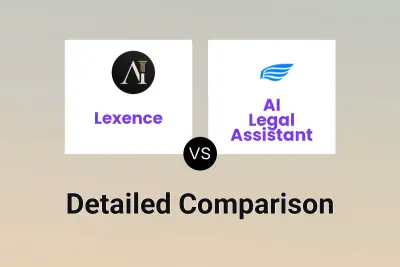
Lexence vs AI Legal Assistant Detailed comparison features, price
ComparisonView details → -
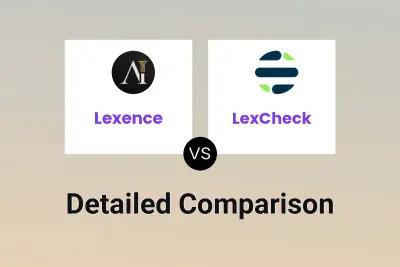
Lexence vs LexCheck Detailed comparison features, price
ComparisonView details → -
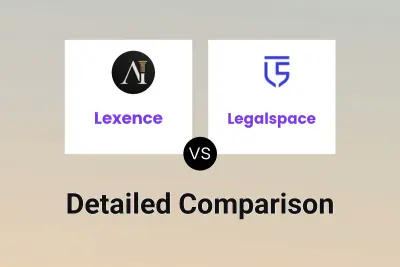
Lexence vs Legalspace Detailed comparison features, price
ComparisonView details → -
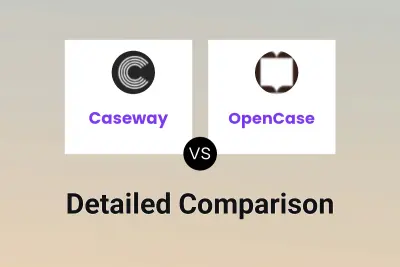
Caseway vs OpenCase Detailed comparison features, price
ComparisonView details → -

The Precedent vs OpenCase Detailed comparison features, price
ComparisonView details → -
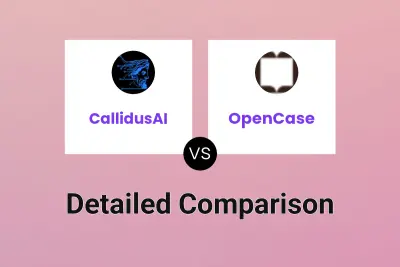
CallidusAI vs OpenCase Detailed comparison features, price
ComparisonView details →
Didn't find tool you were looking for?